
Introduction
Hey there! Dr. Ashish Agrawal here, ready to dive into an important topic that’s close to my heart—cardiac diseases during pregnancy. Did you know that about 1 in 3 pregnancy-related deaths in the U.S. are due to cardiovascular problems? That’s a huge number, and we need to discuss it.
Imagine this: you’re expecting a baby, excited and hopeful. But then you hear that cardiovascular disease complicates up to 4 in 100 pregnancies. That’s a startling statistic, especially when you consider that people who are Asian have a much higher risk of dying during or after pregnancy. Their risk is triple compared to people who are Hispanic or white.
Cardiac diseases during pregnancy aren’t something we can ignore. It’s crucial to understand the risks and take proactive steps to ensure a healthy pregnancy.
So, let’s explore cardiac diseases during pregnancy means, how to recognize the signs, and what we can do to keep both mom and baby healthy.
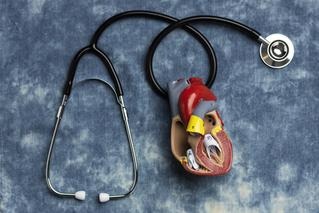
What is Cardiac Disease During Pregnancy?
Cardiac disease during pregnancy is when the heart faces extra challenges. These can be preexisting conditions or new heart issues that develop while expecting. Pregnancy is like a stress test for the heart, increasing blood volume and workload. This can reveal or worsen heart problems.
Preexisting Heart Diseases
Some women start pregnancy with known heart issues. These include congenital heart defects, arrhythmias, or valve problems. These conditions can complicate pregnancy and need extra care and monitoring. Imagine carrying a heavy backpack up a hill. The extra weight of pregnancy makes it even tougher.
Heart Diseases that Develop During Pregnancy
New heart issues can also appear during pregnancy. Conditions like peripartum cardiomyopathy (heart failure) can develop in late pregnancy or soon after delivery. Think of it as a sudden pothole on your smooth road. This unexpected bump requires immediate attention and careful management.
Understanding these heart challenges helps us prepare and act early. We can ensure both mom and baby stay healthy.
Changes to Your Heart and Blood Vessels During Pregnancy
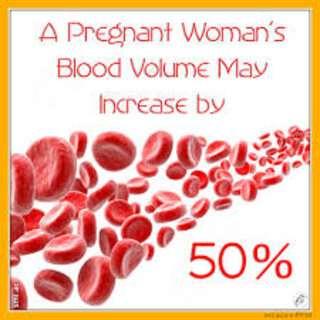
a.Increase in Blood Volume
During pregnancy, your blood volume shoots up by 40% to 45%. Imagine your body as a busy city. The roads are your blood vessels, and cars are your blood cells. Now, add 40% more cars. It’s bustling! This increase ensures your growing baby gets enough nutrients and oxygen. But, it also means your heart has to pump harder.
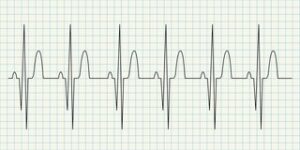
b.Increase in Heart Rate
Your heart rate rises by 10 to 20 beats per minute during pregnancy. It climbs gradually, peaking in the third trimester. Think of it like running a marathon at a slow, steady pace, rather than sprinting. Your heart is working extra to support both you and your baby, making sure everything flows smoothly.

c.Increase in Cardiac Output
By 28 to 34 weeks, your cardiac output—the amount of blood your heart pumps—jumps by 30% to 50%. If you’re expecting twins, it can surge up to 60%! Picture a pump in a water fountain working double-time. This boost is due to the increased blood volume and heart rate. It’s your body’s way of keeping up with the demands of pregnancy, ensuring that every cell gets what it needs.
Understanding these changes helps us appreciate just how hard your heart works during pregnancy. It’s doing an amazing job, and with proper care, both you and your baby can stay healthy and strong.
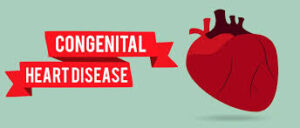
Congenital Heart Disease–
Congenital heart disease is the most common heart issue in pregnant women. These are heart defects you’re born with, ranging from mild to severe. Conditions like mild pulmonary valve stenosis, small atrial septal defects (ASDs), and ventricular septal defects (VSDs) might not have caused issues before. However, during pregnancy, they can affect heart function differently. If you have congenital heart disease, it’s crucial to talk to your provider. They might refer you to a specialist who can manage risks for planned or unplanned pregnancies.
Common complications include arrhythmias, heart failure, and premature birth. Those with mild conditions like repaired ASDs or VSDs generally have low pregnancy risks. However, more severe issues like the Tetralogy of Fallot or Ebstein’s anomaly can increase complications. Always consult a specialist to ensure the safest path for you and your baby.
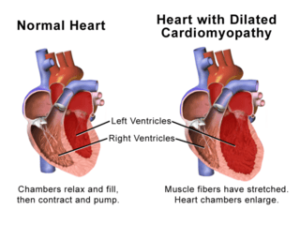
a. Cardiomyopathy
Cardiomyopathy involves the heart muscle itself and can be particularly tricky during pregnancy. Up to 4 in 10 women with dilated cardiomyopathy may face heart failure or other complications. Imagine your heart working double shifts; that’s how tough it can get. Hypertrophic cardiomyopathy is usually less severe, but it can still cause problems, especially if you had symptoms before pregnancy. If you have this condition, close monitoring and a tailored care plan are essential to manage the added stress pregnancy puts on your heart.
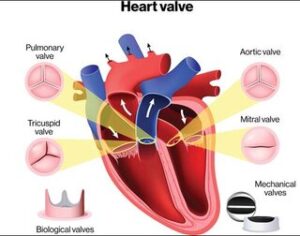
b. Heart Valve Disease
Heart valve diseases, like aortic valve regurgitation, mean your heart’s valves aren’t closing properly, causing blood to leak backwards. Think of it as a leaky faucet that’s making your heart work extra hard. Another condition is mitral valve prolapse, where the valve flaps bulge into the heart’s left upper chamber. This can cause palpitations or even dizziness.
Mitral valve stenosis, where the valve narrows, can severely restrict blood flow. Imagine trying to drink through a pinched straw—it’s a lot of effort. These conditions can complicate pregnancy, but with the right care and monitoring, most women can manage them well. Always keep your healthcare team in the loop to navigate these challenges safely.
What Cardiac Disease Could Develop During Pregnancy?

a. High Blood Pressure (Hypertension)
-Gestational Hypertension:
This is high blood pressure that starts after week 20 of pregnancy. If your blood pressure hits at least 140/90 mmHg, it’s something to watch closely. Imagine your heart suddenly having to pump against a stronger force. That’s tough and can stress your heart and blood vessels. It usually goes away after delivery, but it needs careful monitoring to prevent complications.
-Chronic Hypertension:
This is high blood pressure that you had before becoming pregnant or that occurs before 20 weeks of pregnancy. It sticks around and needs managing to keep both you and your baby safe. Think of it as a long-term challenge, requiring a steady hand and constant care.
-Chronic Hypertension with Superimposed Preeclampsia:
This is a mix of chronic high blood pressure and preeclampsia, a condition that can develop suddenly and cause severe complications. It’s like adding fuel to an already burning fire, requiring immediate medical attention.
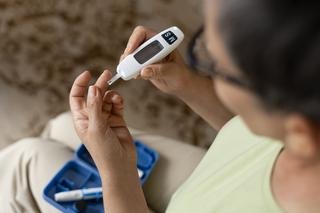
b. Gestational Diabetes
Gestational diabetes develops during pregnancy and can increase the risk of high blood pressure and heart disease. It’s like your body struggling to manage sugar levels with the added stress of pregnancy. Managing your diet and monitoring blood sugar levels are crucial steps to keeping it in check.

c. Arrhythmia
-Ectopic Heartbeat: This is when your heart skips a beat or adds an extra one. It’s usually harmless but can be startling. Imagine a drummer missing a beat in a song. It’s noticeable but often not a big deal.
-Supraventricular Tachycardia (SVT): SVT is a faster-than-normal heart rate that starts in the heart’s upper chambers. It’s like your heart suddenly sprinting without a warm-up. This can be uncomfortable and sometimes requires treatment to slow it down.
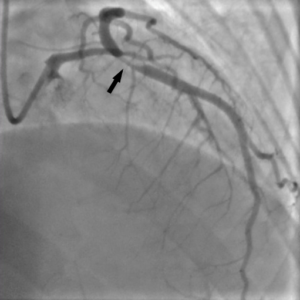
d. Spontaneous Coronary Artery Dissection (SCAD)
SCAD is a rare but serious condition where a tear forms in a coronary artery. It’s like a crack in a water pipe, causing blood to flow between the layers of the artery wall. This can lead to a heart attack and needs immediate medical attention. It’s rare but critical to catch early.
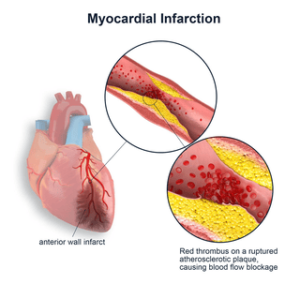
e. Myocardial Ischemia
This condition happens when your heart muscle doesn’t get enough oxygen-rich blood. It’s like trying to run a race while struggling to breathe. This can cause chest pain and other symptoms and needs prompt treatment to ensure your heart gets the oxygen it needs.
f. Peripartum Cardiomyopathy
This is a type of heart failure that happens during the last month of pregnancy or within five months after delivery. Think of it as your heart weakening just when it needs to be strong. Symptoms include fatigue, swelling, and shortness of breath. Immediate medical care is essential to manage this condition.

g. Deep Vein Thrombosis and Pulmonary Embolism
Deep vein thrombosis (DVT) is when a blood clot forms in a deep vein, usually in the leg. If this clot travels to the lungs, it causes a pulmonary embolism, which is life-threatening. Imagine a sudden roadblock in your blood flow. This condition requires prompt treatment with blood thinners to prevent complications.
Treatment Options–
Managing cardiac disease during pregnancy requires a balanced approach, focusing on safety for both mom and baby. Here’s how we do it:
Medications and Their Safety
Certain medications are safe to use during pregnancy, while others aren’t. For example, beta-blockers and calcium channel blockers are often prescribed to manage high blood pressure. They help keep your heart rate steady. However, ACE inhibitors and angiotensin II receptor blockers (ARBs) are usually avoided as they can harm the baby. Always consult with your doctor to ensure any medication you take is safe. It’s like walking a tightrope, balancing effectiveness and safety.
Lifestyle and Home Remedies
Lifestyle changes can make a huge difference in managing heart disease. Eating a balanced diet rich in fruits, vegetables, and whole grains helps. Think of your meals as fuel for your heart. Regular, gentle exercise like walking or swimming keeps your heart strong. But always get the green light from your doctor before starting any new activity.
Managing stress is also crucial. Techniques like deep breathing, meditation, and prenatal yoga can help. It’s like giving your heart a moment to relax and recharge. Avoid smoking and limit alcohol intake to reduce strain on your heart. Simple habits, like getting enough sleep and staying hydrated, are also vital. These small steps collectively create a supportive environment for your heart.
Taking these measures helps ensure you and your baby stay healthy. It’s all about making mindful choices that support your heart and overall well-being.
Conclusion-
We’ve covered a lot about cardiac diseases during pregnancy, highlighting the importance of understanding and managing this condition. From recognizing symptoms to exploring treatment options and making lifestyle changes, it’s clear that proactive heart health is crucial. Remember, your heart is working overtime to support both you and your baby.
Taking steps to monitor your heart health, consulting with specialists, and making informed decisions can make all the difference. It’s about creating a safe, supportive environment for both of you. So, are you ready to take charge of your heart health and ensure a healthy pregnancy?
Your heart and your baby will thank you.
